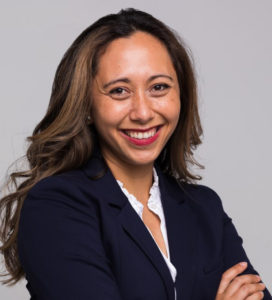• By Mikayla Arciaga, M.A.Ed. May 7, 2025 •
Education funding was at the forefront of conversations about schools this legislative session. Debates about the Georgia Promise Scholarship Voucher Program, charter school expansion, and school safety took up a significant amount of oxygen.
Meanwhile, a small bipartisan contingency renewed a conversation about the long-needed modernization of the Quality Basic Education formula and the call to invest in schools educating students of limited socioeconomic status.
Charter School “Carrot & Stick” Bill
As they have in previous sessions, legislators proposed bills that would extend the reach and reduce oversight of charter schools.
SB 82 and HB 202 were companion bills called the Local Charter School Authorization and Support Act. However, due to strict financial penalties for dissent, it is more accurate to characterize this bill as another attempt to bully public school systems toward more privatization.
Supporters claim they intend for the bills to increase local charter approvals. Currently, charter schools that are rejected by school districts then apply to the State Charter School Commission, which works with them to revise their application to enable them to be approved for state support.
The bills offered a “carrot” in the form of $250,000 grants over three years to school districts that approve additional local charters. But these funds are not guaranteed and are insufficient to meet the long-term needs of running a new school.
The “stick” portion of the bill removes school districts’ ability to charter with the state and their flexibility waivers for up to three years should it reject a certain number of local charter applications that are then approved by the state.
The bill had very little clarity around timelines or opportunities for recourse should a charter ultimately close. Both chambers passed this bill to the governor with bipartisan support, and Governor Kemp signed the bill into law on April 28.
Voucher Expansion Stalls in Georgia
Throughout the session, there seemed to be minimal interest in expanding vouchers following last year’s contentious floor vote and controversy around the eligibility for the program that far exceeded legislators’ “intentions.”
SB 152 would expand eligibility to biological or adopted children of foster parents, not foster children. The House education committee amended it with language to clarify eligibility and the enrollment process for the Promise Scholarship voucher.
The bill ultimately stalled on the House floor. It will have to survive the House committee process again in 2026.
SB 124 would expand promise scholarship voucher eligibility to kids of active duty military personnel. The measure did not see the light of day after advancing to the House.
Representatives did, however, raise the issue of prioritizing military children over foster children during the hearing for another bill (SB 152). We anticipate a return to the conversation of voucher expansion and these two bills in 2026.
Legislators also renewed their annual effort to expand the Qualified Education Expense Tax Credit Voucher, also known as the School Scholarship Organization (SSO) voucher, in HB 328.
This program has been repeatedly criticized for its lack of transparency and accountability measures. The House Ways and Committee approved several amendments to HB 328, including a cap to administrative fees and limitations on rollover funds.
The bill received bipartisan support on the House floor but failed to get a hearing in the Senate Finance Committee. Supporters have historically resisted attempts to amend this program to increase transparency. The debate will continue in 2026.
Opportunity Funding Expansion
On a positive note, years of advocacy are producing progress to modernize the 40-year-old Quality Basic Education (QBE) formula, which calculates funding for public K-12 schools.
Two bills, SB 128 and HB 245, take different approaches but have similar goals of allocating dedicated funds to schools that educate students with limited socioeconomic resources.
SB 128 would add a “layer” of funding on top of the allocations made in QBE based on percentage to be paid out to specific school districts, while HB 245 would create a new program within QBE to allocate these funds.
Neither bill received a hearing this year. But HB 245 received bipartisan support with chair Rep. Tyler Paul Smith (R-18) joining Rep. Gerald Greene (R-154), in signing onto the bill, under the main author, Rep. Phil Olaleye (D-59).
DeAndrea Byrd, IDRA Policy Fellow, and Angela Williams-Pitkonen, Dunwoody high school teacher, spoke at a coalition news conference about the importance of updating the state’s outdated funding formula. Angela’s comments can be found here.
Afterwards, an education action cohort member and high school student, Victoria George, spoke with reporters about her experiences growing up in Stone Mountain and how students living in poverty need additional funding.
Mikayla Arciaga, M.A.Ed., is IDRA’s Georgia advocacy director and Education Policy Fellows coordinator. Comments and questions may be directed to her via e-mail at mikayla.arciaga@idra.org.





